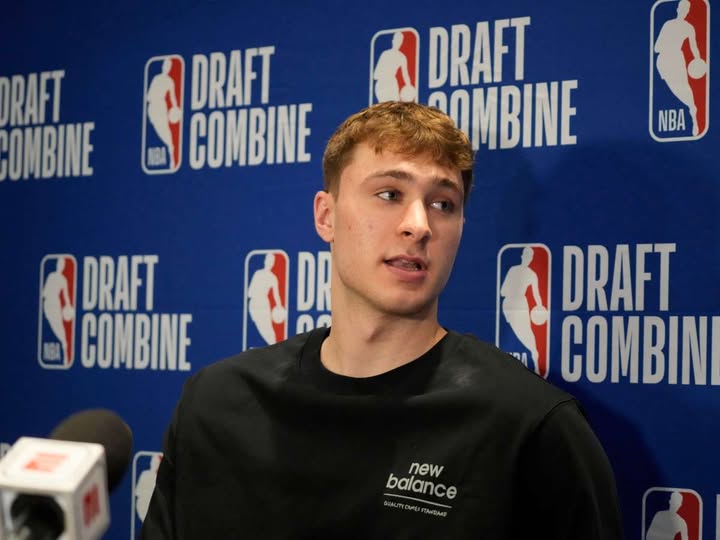In the world of college basketball, few names have resonated as powerfully in recent years as Cooper Flagg. The 6-foot-8 forward from Newport, Maine, has captivated audiences with his exceptional skills, earning accolades such as the 2025 National Player of the Year and a consensus first-team All-American selection. His remarkable freshman season at Duke University has positioned him as the projected No. 1 pick in the upcoming NBA Draft.
However, as the draft approaches, Flagg faces a pivotal decision: to declare for the NBA Draft or return to Duke for another season. This juncture has attracted the attention of former NBA stars, including Dwight Howard, who have weighed in on the matter. Howard, known for his illustrious career and recent ventures in various basketball leagues, has publicly urged Flagg to consider staying at Duke. His advice underscores the complexities young athletes face when balancing immediate professional opportunities with long-term personal and professional development
Howard’s counsel to Flagg is rooted in the belief that collegiate experience can offer invaluable growth opportunities that the NBA may not immediately provide. He emphasizes the importance of maturity, both on and off the court, suggesting that an additional year in college could better prepare Flagg for the challenges of professional basketball. This perspective aligns with sentiments expressed by other basketball figures, including Duke’s legendary coach Mike Krzyzewski, who has also advised Flagg to make a decision that is best for his future.
The debate over Flagg’s potential return to college highlights a broader conversation about the paths young athletes take to professional sports. While the allure of immediate financial gain and the prestige of the NBA are compelling, the collegiate route offers a platform for personal development, exposure, and the opportunity to refine skills in a structured environment. For Flagg, the decision involves weighing these factors carefully.
As the NBA Draft looms, Flagg’s choice will be closely watched, not only for its impact on his career but also for the precedent it sets for future generations of athletes navigating the intersection of education and professional sports. In the end, the “unthinkable choice” may not be about the decision itself but about the thoughtful consideration of what path best aligns with one’s long-term aspirations and values.




